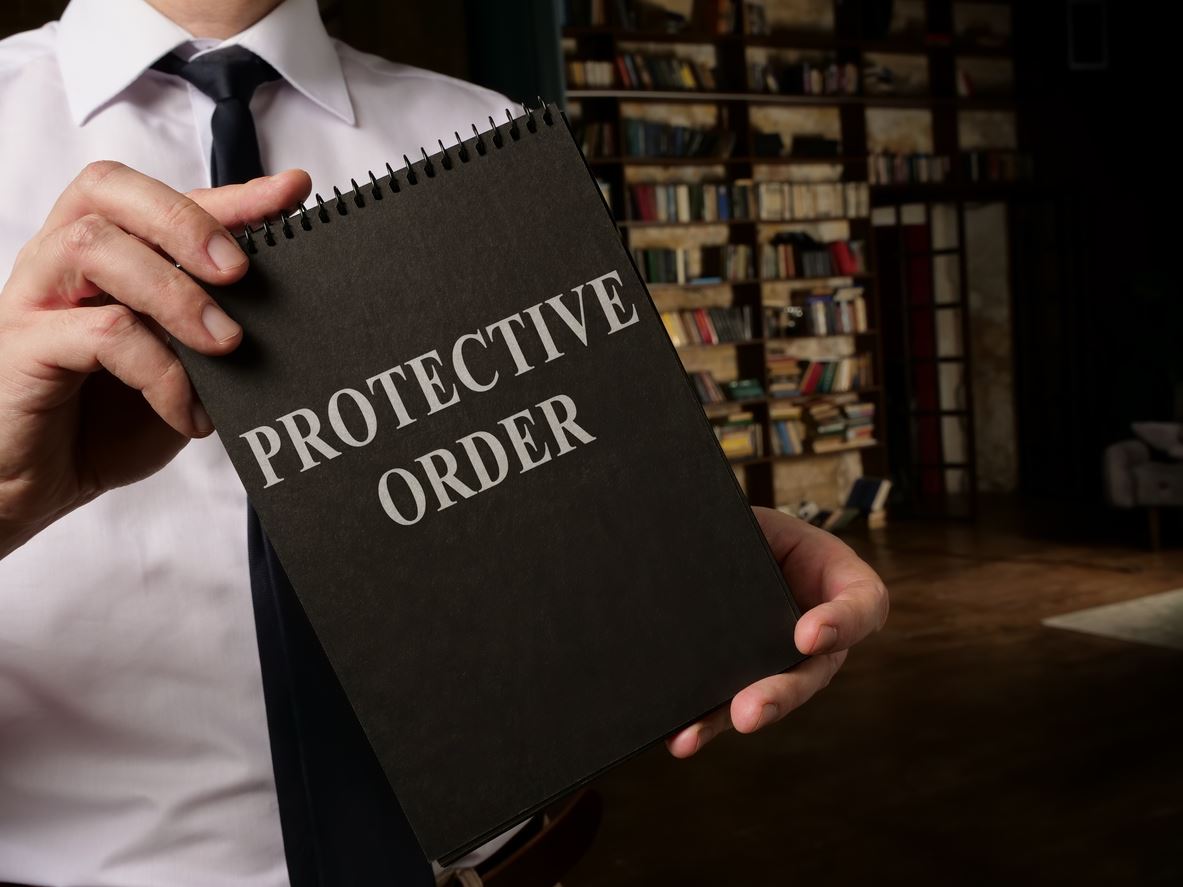A protective order, often known as a “restraining order,” is a way of legally keeping one person away from another. It is issued when a judge or magistrate has found that an act of violence, force, or threat has been committed against someone and that there is bodily injury or reasonable apprehension of death, sexual assault, or bodily injury. The judge or magistrate must also determine that the protective order is necessary to protect the life and safety of the person. When a protective order is issued the main requirement is usually that there be no contact with someone or some orders allow for peaceful contact only or some make exceptions for certain types of contact such as arranging visits with children.
Protective orders also prohibit behavior that is already illegal such as assaulting someone or stalking or threatening someone. If you commit this type of activity you can be arrested for that offense in addition to the violation of a protective order if there is one in place and the terms have not been followed. Protective order violations can even be brought when you simply call or say hello. Even though there is no threatening behavior if the order says no contact that is a violation. You can get a violation if you send a message over social media or have a family member or friend relay a message. Finally, you can even get a violation if the person who obtained the protective order reaches out to you and you respond to them! That person is not under a court order and while them reaching out to you can be something a judge considers to issue a protective order down the road, they cannot be charged with violating it like you can be charged.
A protective order provides police notice that the person is in a protected status so they can arrest the person for any violations in addition to any other illegal acts that were committed. When protective orders are in place, it sends a message to police that the situation can be dangerous so they can be alert when serving paperwork or responding to the calls.
Anytime there is a protective order in place you not only risk going to jail if you violate you may face some other consequences too.
Personal Consequences
A restraining order prohibits your contact with the person who accused you unless there are exceptions made. If you have children together, you must avoid them as well or make arrangements to see them as per any exceptions noted in the order. Your accuser may stay in the family home and keep the family pet. You cannot approach the home, even when it is empty unless the order specifies you may go with an officer to remove your belongings or unless it states that you may have contact with the accuser in writing to arrange a time to get your things or have a third party pick them up from the house.
Some orders require you to continue to support your accuser, even though you cannot be around them. If you were live-in, romantic partners, you may be ordered to continue to provide them housing. You cannot discontinue their utilities or cellphone service. They may use the family vehicle unhindered, and you cannot use electronics to track their location. If the parties have children together, protective orders can include temporary child custody, child support, and visitation orders as well.
Your gun rights are also impacted when there is a protective order in place as you must surrender your concealed weapons permit when there is an order pending. If a permanent protective order is granted you must sign a notice and submit it to the court that you have no firearms or that all firearms have been transferred out of your possession. Failing to do these things can result in new charges as well.
Legal Consequences
If you are served with a protective order and you are found to violate it, know that your freedom is at risk and you face jail and the issuance of a new protective order. A judge cannot suspend all the time on a protective order violation. Every time you violate the penalties increase:
The first violation is a Class 1 misdemeanor, the highest in the state. These misdemeanors are punishable by up to one year in jail and fines as high as $2,500.
A second alleged offense is still a misdemeanor, but it carries a mandatory 60 days in jail.
By the third offense, the crime is elevated. It becomes a Class 6 felony, carrying up to five years in prison with fines up to $2,500.
Remember that a violation could be as small as calling to say you miss the person or trying to go home and get your belongings or calling your kids to say goodnight or it could be something more serious like threatening the person or sending messages to convince them to drop the case.
Speak With an Attorney
If you have been served with any kind of protective order, seek legal counsel. You can use the time allotted to build your defense, and then you can fight against the allegations. You can also make sure you understand what the court or magistrate has ordered so you do not risk a criminal charge for violating the order. If you do violate you will need an attorney to defend you in court as you will receive jail time if convicted.
For help fighting protective orders or violations of protective orders, contact our firm today. We can give you a free initial consultation, and we may be able to start preparing a defense right away. Contact us online, or call (703) 940-0001.


